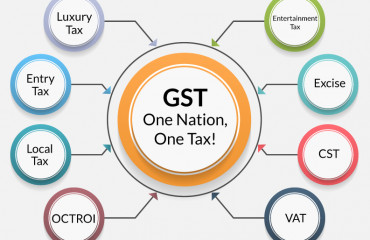
Every Friday, Plain Facts publishes a compilation of data-based insights, complete with easy-to-read visual charts, to help you delve deeper into the stories reported by Mint in the week gone by. Despite high inflation and rising interest rate, India’s credit card spending has been strong, while consumers are also seeing grammage cuts in day-to-day products. Covid cases are on a continuous rise.
Every Friday, Plain Facts publishes a compilation of data-based insights, complete with easy-to-read visual charts, to help you delve deeper into the stories reported by Mint in the week gone by. Despite high inflation and rising interest rate, India's credit card spending has been strong, while consumers are also seeing grammage cuts in day-to-day products. Covid cases are on a continuous rise.
Going Strong
Even with high inflation and a rising interest rate, the growth in credit card spending has remained strong, showing signs of strength in the retail economy. Credit card spending touched an all-time high of ₹1.14 trillion in May, more than doubling from a year ago, because of high-value spending on travel and tourism and discretionary purchases, data from the Reserve Bank of India showed. HDFC Bank held the highest market share in credit card spending, followed by ICICI Bank.
Shrinkflation Is Here
With inflationary pressures exacerbated by the Russia-Ukraine war, firms have resorted to downsizing product packets instead of hiking prices, a phenomenon called "shrinkflation". From dishwashing soaps and biscuits to instant noodles, several products have seen a grammage cut of 5-25% in recent months, which may impact consumer demand less adversely than direct price hikes, Mint reported. However, India isn't alone in facing shrinkflation. Similar quantity cuts have been made in the US, the UK, and Australia, as well as other countries, as inflation rages on.
Expanding EV Business
That's the sum private equity giants TPG Capital and KKR & Co. are in talks to invest in TVS Motor Co. Ltd to fund the expansion of the electric vehicle business, Mint reported. TVS may raise $200 million more for the business. The money is likely to be used to acquire more startups in the EV segment and to expand TVS Motor's partnership with BMW Motorrad. Private equity firms and venture capital funds have been investing big in Indian EV startups.
Covid Continues
The sudden rise in the number of covid-19 cases that started last month has continued over the past week, with 18,819 confirmed cases recorded on Wednesday, up from 14,506 the previous day. This is the highest daily count in the current wave of infections. While the government is looking for the possibility of a new variant or sub-variant behind the rise, the threat of a severe covid wave hasn't emerged yet. Meanwhile, the Drugs Controller General of India (DCGI) on Tuesday approved India's first indigenously developed mRNA vaccine for restricted emergency use for those aged 18 years and above.
Oil Toil
As the Group of Seven (G7) countries agreed to curb Russian oil imports, crude oil prices jumped up again to reach $121 per barrel because of supply concerns. The surge in crude oil prices over $100 per barrel since the end of February has already led to several risks to India from inflation to rupee though petrol and diesel prices have not undergone revision. The lack of revision in fuel prices even as crude oil prices remain high and expected to remain so could further impact the financials of Indian oil companies.
That's the decline in export volume Indian exporters are anticipating from the previous year against the tough global backdrop of a possible recession in the US and the EU, Mint reported. Indian exporters, especially in the leather and textiles industry, are already facing a decline in orders, even as imports are swelling because of higher prices of crude oil and fertilizers. Record imports had widened India's trade deficit in May to the highest-ever level of $24.29 billion. The decline, however, could prove to be temporary as demand has largely been strong from the western countries.
Acquiring AI Talent
Adoption of artificial intelligence (AI) in India is happening at a slow pace. However, there is no dearth of talent in the segment. Despite accounting for only 1% of the global AI market, India produces 16% of the world's talent pool, the third highest in the world, according to a report by Microsoft, consultancy firm Bain & Company, and industry body Internet and Mobile Association of India (IAMAI). The maximum AI talent is coming from upskilling within an organisation and from universities.
Chart of the Week: Taxing High?
The GST Council on Wednesday announced tax rate changes for several items, which will come into effect from 18 July. Data available so far suggests the highest number of goods are taxed at 18%, and with recent rate revisions, the number for the tax slab will go up.
Follow us on #MintCharts on Twitter and subscribe to Mint's Top of the Morning newsletter for our Chart of the Day.
